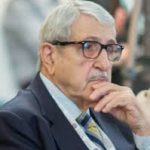This paper focuses on the design and implementation of economic reforms, which are an integral part of the process of peace and reconstruction. The challenge for economic reforms is immense. On one hand, economic policies should aim at minimizing the risk of conflict recurrence, restoring confidence in economic institutions, generating employment and fostering investment, and enhancing the ability of the state to provide security for households and communities, enforce the rule of law and deliver essential services. On the other hand, structural economic reforms cannot be postponed in order to cope with a preconflict economic structure that did very little to avoid the conflict and that can be highly distorted as a result of the war effort. Therefore, reconstruction policies should be primarily geared towards changing, improving or, even in an extreme case, eliminating altogether the pre-conflict institutional fabric of the country. That is, the set of economic institutions –and their embedded structure of incentives—that helped create the conditions for failure.

Senior Associates
Samir Makdisi
Professor Emeritus of Economics, American University of...

Senior Associates
Raimundo Soto
Associate Professor of Economics, Pontificia Universidad Católica...


